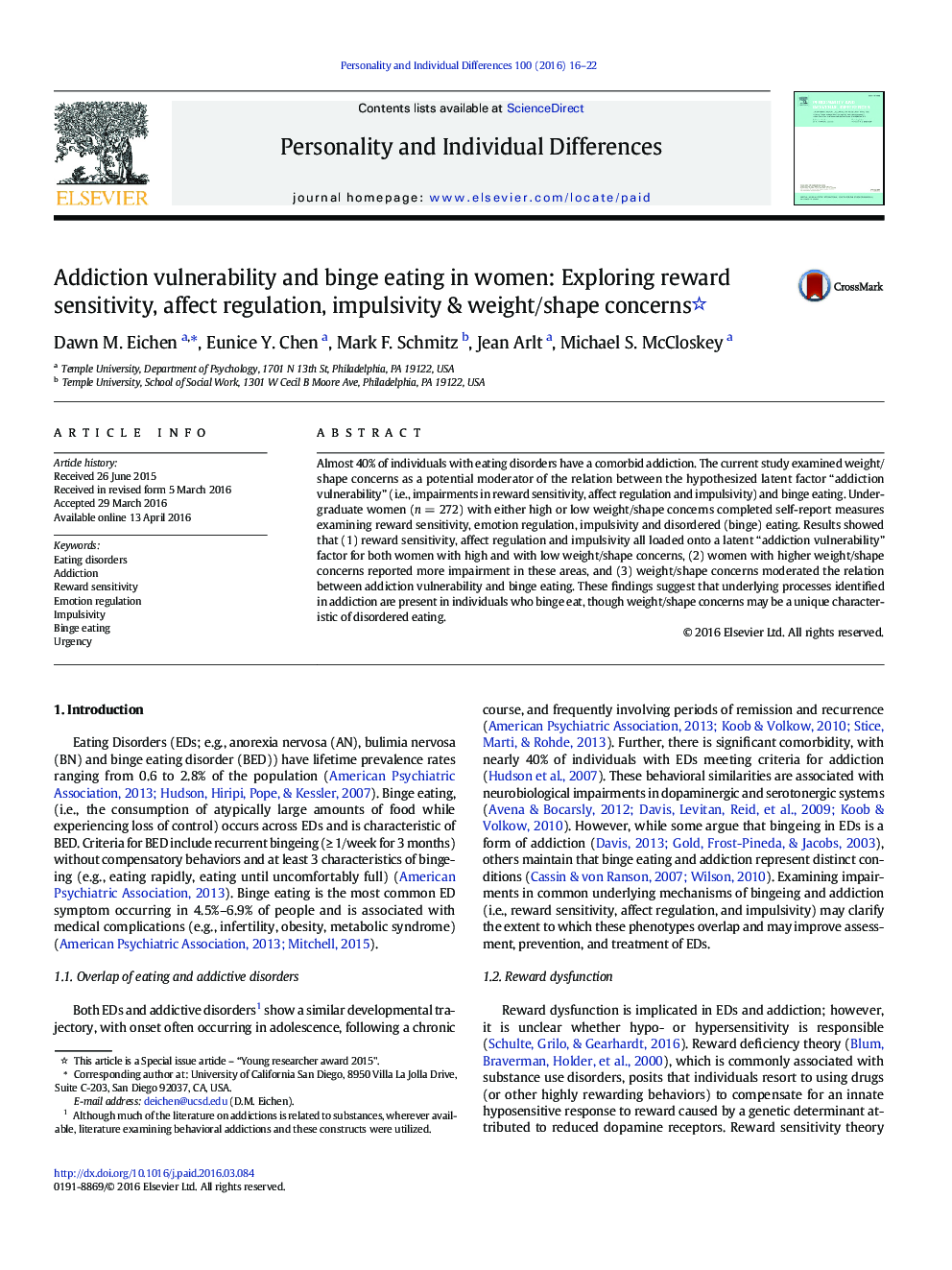| Article ID | Journal | Published Year | Pages | File Type |
|---|---|---|---|---|
| 889619 | Personality and Individual Differences | 2016 | 7 Pages |
•We examined a proposed model of “addiction vulnerability” in binge eating behavior.•We explored specific putative commonalities between eating disorders and addictions.•Reward, affect, and cognitive processes loaded on the addiction vulnerability factor.•Weight and shape concerns moderated binge eating and addiction vulnerability.
Almost 40% of individuals with eating disorders have a comorbid addiction. The current study examined weight/shape concerns as a potential moderator of the relation between the hypothesized latent factor “addiction vulnerability” (i.e., impairments in reward sensitivity, affect regulation and impulsivity) and binge eating. Undergraduate women (n = 272) with either high or low weight/shape concerns completed self-report measures examining reward sensitivity, emotion regulation, impulsivity and disordered (binge) eating. Results showed that (1) reward sensitivity, affect regulation and impulsivity all loaded onto a latent “addiction vulnerability” factor for both women with high and with low weight/shape concerns, (2) women with higher weight/shape concerns reported more impairment in these areas, and (3) weight/shape concerns moderated the relation between addiction vulnerability and binge eating. These findings suggest that underlying processes identified in addiction are present in individuals who binge eat, though weight/shape concerns may be a unique characteristic of disordered eating.
